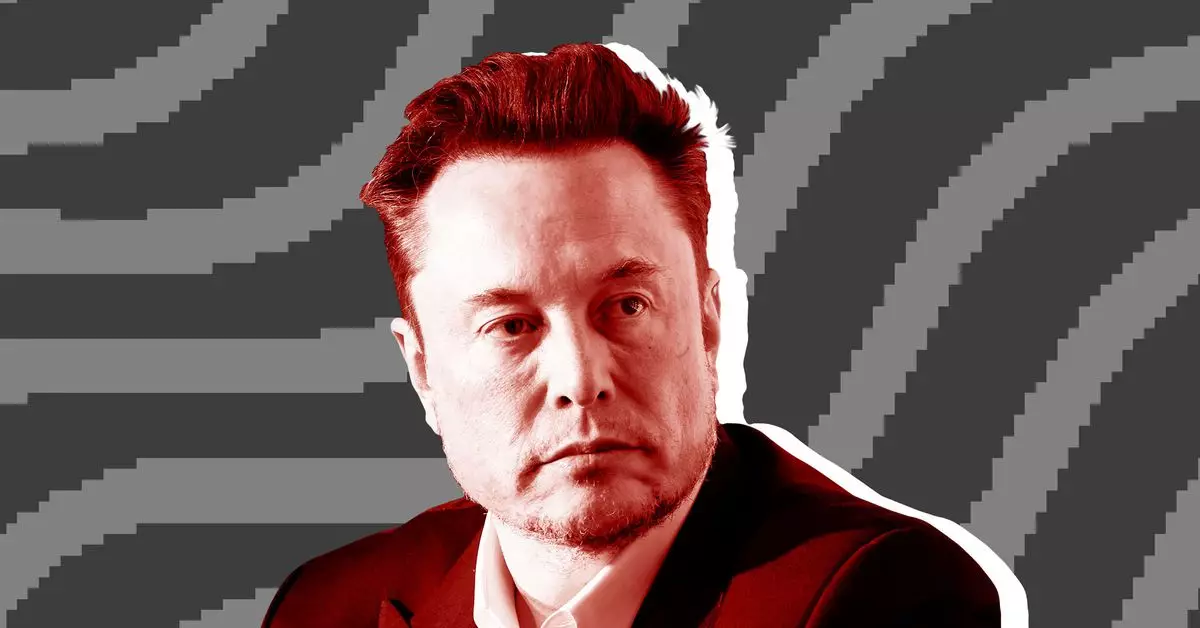In an audacious move, President-elect Donald Trump has appointed two high-profile figures, Elon Musk and Vivek Ramaswamy, to spearhead a new initiative titled the Department of Government Efficiency (DOGE). This announcement, made through Trump’s social media platform, Truth Social, has sparked considerable debate about the viability and implications of such an initiative. The department ostensibly aims to streamline government operations by reducing bureaucracy, cutting down on excessive regulations, and restructuring federal agencies.
The mere acronym, DOGE, has drawn both attention and skepticism. While the initiative’s objectives may resonate with longstanding conservative desires to minimize government footprint, the feasibility of implementing such sweeping changes is questionable. Musk, known for his disruptive ventures in technology and transport, has promised to explore the possibility of slashing up to $2 trillion from the federal budget. However, experts argue that achieving such drastic reductions without touching critical areas such as defense spending or entitlements—like Social Security—would be enormously challenging.
One cannot overlook the broader implications of Musk leading this charge. His history of ambitious goals and speculative ideas can inspire innovation, but it also raises concerns about his understanding of governmental complexities. Historically, the functioning of federal agencies involves multifaceted layers of regulation and public accountability that cannot be easily dismantled. Whether Musk can navigate this intricate web, while transforming it into a more efficient entity, remains to be seen.
The structure of DOGE is particularly intriguing. Functioning “outside of government,” the department will collaborate with the White House and the Office of Management and Budget. This approach suggests an attempt to bypass some of the bureaucratic barriers that often hinder governmental reform. However, critics argue that this very separation risks alienating the very system they aim to reform. Many question if a solution can truly be effective when the actors attempting to influence it are detached from the reality of existing bureaucratic obstacles.
Moreover, the timeline set for their efforts is ambitious. Musk and Ramaswamy have until July 4, 2026, to enact meaningful change, coinciding with the 250th anniversary of the Declaration of Independence. This juxtaposition may serve as a motivational symbol; nevertheless, it also places immense pressure on them to show tangible results within a short time frame.
The idea of creating what Trump describes as “the Manhattan Project of our time” conveys an image of groundbreaking, transformative work aimed at redefining governmental protocols. But it begs the question: can innovation and entrepreneurial spirit genuinely flourish within a framework historically tied down by red tape and rigid regulations?
Public reaction to DOGE has been mixed. While many celebrate the prospect of a streamlined government, others express skepticism regarding the expertise of its leaders. Musk’s influence on the cryptocurrency market, particularly with Dogecoin, has only intensified since the announcement, with the value of the coin reportedly doubling post-election. This correlation raises eyebrows regarding the intertwining of corporate interests and governmental roles.
The relationship between Musk and the broader political landscape also adds layers of complexity. With sustained investments in Trump’s campaign, including support from PACs, critics are wary that the initiative may serve to fast-track personal agendas rather than prioritizing the welfare of citizens.
Ultimately, the success of the Department of Government Efficiency hinges on several factors, including public support, operational transparency, and the actual willingness to tackle difficult issues head-on. As Musk and Ramaswamy embark on this ambitious journey, they face both an opportunity and a responsibility to catalyze change in a manner that resonates with American values.
Whether DOGE can deliver a leaner and more effective government is a prospect that will unfold over the next few years. For now, the combination of high expectations and real-world complexities outlines a precarious balancing act. As this unconventional administration takes shape, all eyes will remain tuned to Musk’s and Ramaswamy’s moves in this high-stakes game.


Leave a Reply